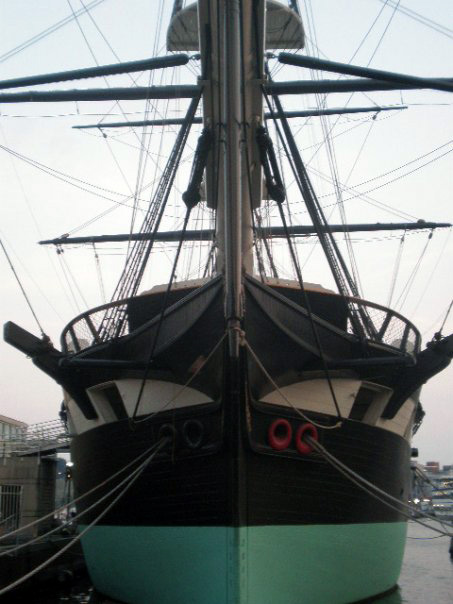Today is day 2 of the 5th week I’ve been working with Mike as a Marine Technician’s Assistant (yesterday I got a promotion from Helper).
Over the past month I’ve learned lots about marine repair …from trailering, fiberglassing, painting and plumbing to wiring and engine overhauling.
I’ve had the opportunity to see and crawl around inside lots of boats: an entire gantlet running from half-million dollar castle-boats with spotless interiors, $100,000 digital control stations and surgically-clean engine rooms on down to sad un-maintained vessels littered with trash, crippled by seized engines and rusted transmissions, that should’ve been recycled into tuna cans decades ago.
Some of the boats I’ve seen are weekend getaway cabins, places married couples enjoy visiting on weekends. Others are “bachelor pads” outfitted to impress the impressionable and then there’s a few that must be owned by ghosts … because no one’s seen the owners in years.
If the boats come in as many flavors and variations as opinions about what color to paint the church bathrooms, there’s one thing the owners share in common: severe anxiety and teeth-gnashing sets in at the mere mention of the word Leak.
Any leak, no matter what size, can cause an owner living two time zones away to catch the first jet outta town and make a panicked personal appearance at the marina. Because leaks make boats sink … and except for submarines nobody ever designed a boat to intentionally sink.
Leaks cause water to seep in, accumulate and cause damage in places you can’t see until it’s too late. Leaks can saturate a hull’s core and cause it to weaken and fail. Leaks can affect critical structural elements like ribs and keels, creating damage two or three times more than the boat’s worth to repair.
An undetected leak can cause a boat to pull apart and sink while underway, with little or no advance warning. Sinking results in a catastrophic financial loss, without even considering salvage costs … or mentioning the immediate threat to spouses, friends or family onboard at the time.
Starting with a leak no larger than the period at the end of this sentence.
Leaks are universally inarguably accepted in the boating world to be a Bad Thing: There’s more water out there than you have boat to hold it and still stay afloat.
But My Boat Only Leaks On Weekends … doesn’t it?
You never hear an owner dismiss a leak with “It’s no big deal” or “So who’s it hurting?”
No one ever says “Everybody else’s boat is leaking,” “What I do with my leak is my business,” “I grew up hearing about leaks every weekend, but now I figure a little leaking is OK” or “A leak is just your opinion.”
And never “Somebody made up sinking a long time ago to scare kids, and I don’t think sinking actually exists.”
Like you’ll never hear anyone shrug “I’m a little bit pregnant,” “I’m a little bit bankrupt” or “I’m a little bit in prison.” Nor does anyone ever tell their doctor “I don’t think dying from a terminally disease will be that bad.”
It’s OK So Long As Nobody Sees I’m Leaking
But a little sinning? What’s a little rot eating away at the spiritual core? Who’s getting hurt by some weakening of the critical structure? We’re more likely to say “I can handle my own leaks” or “I’ll fix my leaks when I’m ready” than “I need to stop this right away!”
The smallest hairline leak is insidious and will eventually compromise and threaten the structure’s integrity. The tiniest hole, left to itself, can swell by weakening everything it touches … including steel. Ignored long enough, a pinhole leak can create staggering unseen damage … and make a vessel useless for its intended purpose.
If an owner’s got a laundry list of repairs he’d like scheduled, you can be sure I Think There’s A Leak is in bold letters at the top of the page.


No comments:
Post a Comment